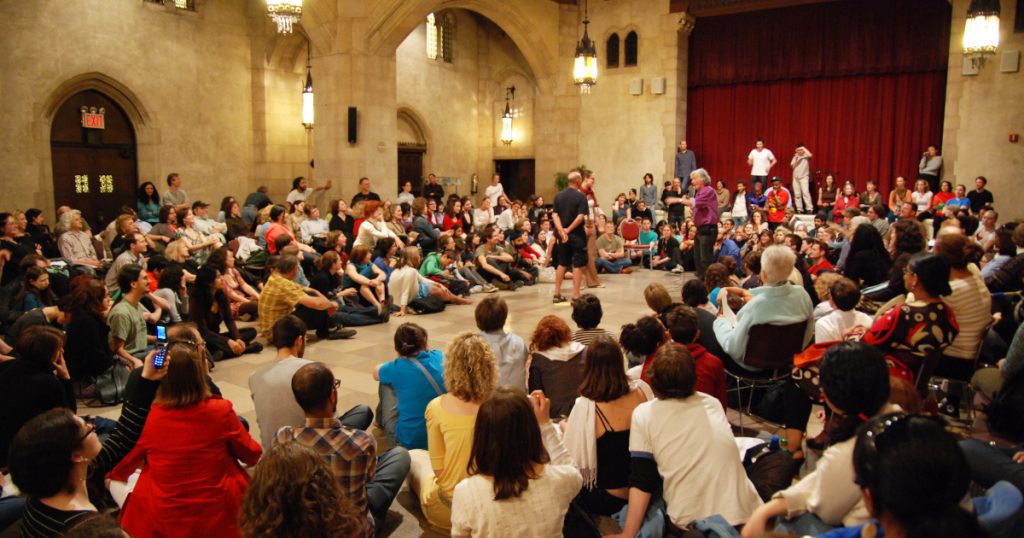
Augusto Boal
Rio de Janeiro (Brazil)
Overview
Title of the Intervention : Theatrical-political mandate (general overview)
When it was implemented: 1993-1996
Numbers of participants: Thousands
Where we are: Rio de Janeiro, Brazil
Rio de Janeiro, Brazil
43 different legislative proposals
Workers Party
Lawyers
Members of the Local Council
Institutions: State of Rio de Janeiro (Darcy Ribeiro)
The Commission for Human Rights
Describe each step of the initiative: bottom-up
Lawyers, Social animators/theatre practitioners (jokers), Community Leaders, Media/press professionals
Tasks: drafting legal measures, legal actions, direct actions
Organisation/Activation of collaborators: Rings, Community Nuclei and Thematic Nuclei
– Rings: A group of people from the same community or a collective from a favela that has contact with Boal’s Office at the Municipal Chamber, to which they express their desires and needs. The contacts are made either by sending a representative of the community to the Office, during a visit by the Representatives, through a booth set up by the Chamber in the Square, or via the ‘interactive mail.’ A nucleus is a unit that structures itself as a Theatre of the Oppressed group and collaborates in a structured manner with the Office.
– Community Nuclei: the participants are people who live in the same favela and share the same problems.
Boal and his team would work closely with a community to identify pressing issues and concerns. This process often involved workshops, discussions, and other interactive methods to ensure that the themes were genuinely reflective of the community’s lived experiences. The process of identifying and exploring community nuclei is participatory. Community members are not just passive recipients but active creators of the theatrical content. This empowers them to express their stories and seek solutions collectively.
– Thematic Nuclei: Formed by participants who make common cause and unite around a common goal/cause.
– Mixed thematic-community nucleus: the members are motivated by both community interests and collective interests (e.g., farmers from a particular settlement).
Animators of the TDO center – the permanent theater company – rings and Nuclei used to organise workshops, performances in the neighbor, participation/organization of festivals/celebrations
A common method used to explore community nuclei is Forum Theatre, where a play is performed that highlights the identified issues. The audience is encouraged to intervene, suggest alternatives, and even step into roles to change the outcome, fostering a deeper understanding and potential for real-life change. When the group its ready, it performs in front of the whole community
The Metabolic Cell receives the proposal from the different Nuclei and works in order to transform/adapt these requests into a legislative proposal
The proposals are presented by Boal (as a Local Councilor) in the Chamber of Vereadores, inviting the communities. Vereadores are local councilors elected to represent the interests of the citizens within the municipality.
If a law is already existing but not applied in the “correct” way, the Metabolic Cell can decide to improve different actions in order to support the application of the law (e.g. invisible theatre, campaigns, advocacy, etc.)
Feedback to the Community: if the process was unsuccessful, the path can start again from the beginning, stimulating again the community / if the process was successful, they encouraged the community to monitor the implementation of the regulations
Describe each step of the initiative: top-down
The decision is discussed inside the Chamber. Boal, as Local Councilor, must take a decision and vote. For what?
Organise a Chamber in the square / interactive mail to consult groups of people concerned to the topic of the law
Take an official position inside the Chamber
